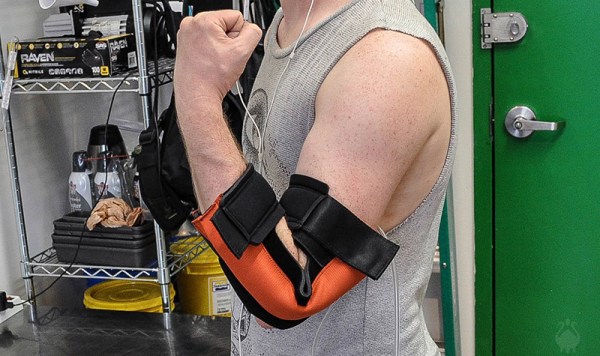Nearly a million people in the US suffer from CP, a neurological disorder that causes spastic motion in the limbs. One of the biggest quality of life factors for CP sufferers is the ability to use their arms, and that means an expensive and clunky orthotic around their elbow. [Matthew] has a better idea: why not make a soft orthotic?
This is not [Matthew]’s first project with soft robotics. He’s the lead scientist at Super Releaser, the company responsible for the completely soft robotic Glaucus atlanticus and other soft pneumatic robots.
This soft, flexible orthotic exoskeleton is designed for sufferers of chronic movement disorders. Traditional orthotics are expensive, difficult to move, and uncomfortable, but by designing this orthotic to be just as strong but a little more forgiving, these devices minimize most of the problems.
The Neucuff is constructed out of extremely simple materials – just some neoprene, a velcro, and a CO2 cartridge. The problem with bringing this to market, as with all medical devices, is FDA requirements and certifications. That makes the Hackaday Prize an excellent opportunity for [Matthew] and the rest of Super Releaser, as well as anyone else trying to navigate regulatory requirements in order to change the world.
















